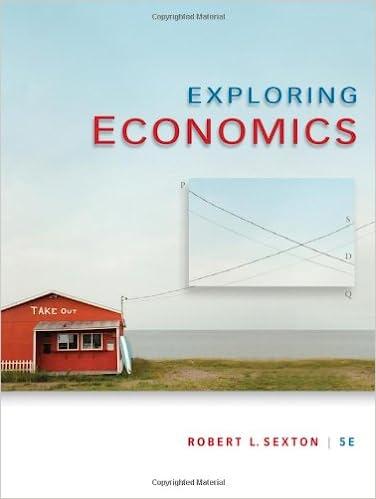Multiple Choice Questions: 1. Which of the following is not true of health care expenditures over the
Question:
1. Which of the following is not true of health care expenditures over the past few decades?
a. The share paid for by private insurance companies has fallen.
b. The share paid for by health care consumers out of pocket has fallen.
c. The share of health care expenditures spent on the elderly has risen.
d. Total expenditures on health care from all sources have risen.
2. In the decades following the passage of Medicare and Medicaid, which of the following has not risen?
a. The share of expenditures on health care in proportion to the economy
b. The prices of health care services relative to the prices of other goods and services
c. The share of health care expenditures financed by consumers out of pocket
d. The share of health care expenditures that are from third-party payers
3. Growth in payments for health care services that come from third-party payers has not tended to be accompanied by
a. Increased incentives for consumers to demand “the best” health care providers.
b. Increased incentives for suppliers to find ways to provide health care at low prices.
c. Decreased sensitivity of health care consumers to the prices of health care services.
d. Increases in the level of medical technology.
4. Given current U.S. health care policy, the growth in the proportion of the population that is elderly will tend to_______________ health care demand and _______________ the share of health care services financed by third parties.
a. Increase; increase
b. Increase; decrease
c. Decrease; increase
d. Decrease; decrease
5. Which of the following would assist in controlling the growth of future health care expenditures?
a. An increase in the share of the population that has private health insurance with low copayments.
b. Expanding Medicare to include discounts for drugs in the program.
c. an increase in the share of health care paid for by consumers through health savings accounts.
d. a decrease in copayments for the elderly under Medicare.
6. Special accounts that people pay into to be used for medical expenses are called
a. Comprehensive insurance plans.
b. National health insurance plans.
c. Health savings accounts.
d. Health maintenance organizations.
7. Advantages of health savings accounts from an efficiency standpoint include
a. Guaranteeing that no one will every be forced to pay for another medical bill.
b. Giving medical care consumers substantial incentives to economize on their expenditures.
c. Requiring employers to pay a larger fraction of their employees’ health care bills.
d. Increasing the flexibility of the labor market by allowing employees to take the accounts with them when they change jobs.
e. Both b and d.
Fantastic news! We've Found the answer you've been seeking!
Step by Step Answer:
Related Book For 

Question Posted:





